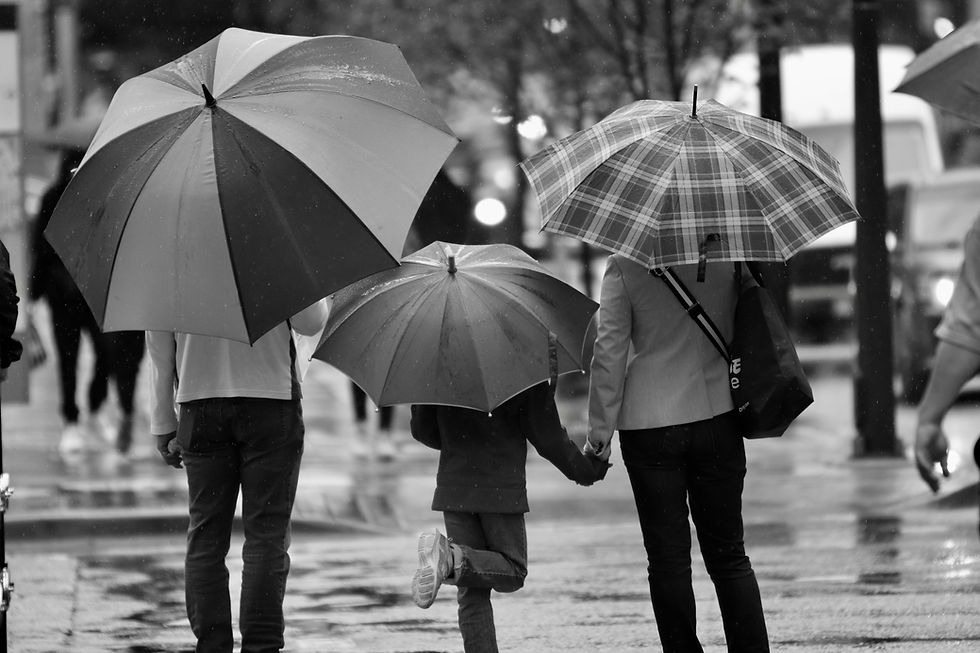Negative thinking patterns developed from childhood
- Jonas

- Dec 22, 2021
- 7 min read
Updated: May 11, 2022
In life, we develop profound beliefs about how we see ourselves, others, and the world. If it all goes well, these beliefs will adapt as you and your environment change. But, you can also develop beliefs that don't help you, and that don't adapt to change. You might be experiencing harmful thinking patterns that you are unaware of that served as a survival strategy when you were younger. It can interfere with your development and make life very difficult when you get older.

In this article, we'll talk about negative thinking patterns, what maladaptive patterns are, how they are developed, and we'll find out if you (the reader) are dealing with negative patterns that may be developed from your childhood.
What are maladaptive thinking patterns?
You may develop certain thinking patterns that interfere with your development. At the time, they suited the situations in which they developed and served as survival strategies. For example, think of a dog rescued from a house where the animal was mistreated. The dog learned that the world is a dangerous place and that people cannot be trusted. Often when the dog is taken into a loving family afterward, he remains anxious, even though he is now cherished. The fear and mistrust can cause him to hide and avoid people. Or even lunge and bite to protect themselves. People work the same way.
We call this pattern maladaptive or dysfunctional. It does not adapt when the circumstances change. These triggers often occur with familiar events, which peak your emotions and lead to destructive behavior and consequences. It's like being pulled back into the experiences in which it developed. You react with emotions, thoughts, and behavior that do not match the situation as it is now.
10 things about dysfunctional thinking patterns:
Dysfunctional thinking patterns are:
1. Ideas, which are not always right, and can be very destructive.
2. Important beliefs about yourself, others, and the world.
3. Perceived as the truth.
4. Perpetuate themselves.
5. Difficult to detect.
6. Usually, out of our consciousness.
7. It works subtly.
8. Activated by events and they control our thoughts, emotions, and behaviors.
9. Difficult to change until treated with targeted therapy.
10. Designed to survive, but not to heal or recover.
How do negative thinking patterns develop?
Negative, dysfunctional, or maladaptive thinking patterns develop during childhood. Children have certain needs that must be fulfilled to develop properly. Such as:
1. Raised in a warm, stable, connected, and secure environment. 2. Having space to function autonomously and independently. 3. Being able to find their own needs and interests. 4. Being able to express themselves freely. 5. Being raised by someone with realistic boundaries.
If you didn't feel loved as a child, you might see yourself as unlovable, even as an adult. Even if people in your adult life are trying to give you love and warmth, you may catch yourself trying to find "proof" that you are not worth loving. You might be attracted to people who mistreat you, or you may avoid intimate relationships altogether.
When you look at a nest of puppies, you can see the difference in the temperament of the puppies. One stays close to its mother, the other carefully explores, and the last puppy jumps at everything without having a break. It is the same with people. We get a certain temperament at birth. Besides your temperament, the way you are treated in your environment, the things you experience (think of traumas), and the kind of society you grow up in impact your development.
With negative thinking patterns you may find yourself acting in the following 3 ways:
Confirmation: You will only see the information that matches your negative thinking pattern.
Avoidances: You avoid situations that can trigger your patterns.
Overcompensation: You overcompensate your patterns with opposite behavior.

Do I have negative thinking patterns?



Comments